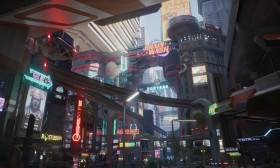The pixelated void of Environmental Station Alpha does not greet you with grandeur. There is no sweeping orchestral score, no expository crawl detailing a fallen empire or a galactic war. There is only the low, persistent hum of machinery, the distorted chirp of an unidentified creature, and the rhythmic patter of digital rain against your probe’s metallic shell. You are not a legendary warrior; you are a faceless, nameless probe, dispatched to a forgotten research outpost hanging in the black silence of space. Your mission is simple, almost mundane: investigate a station-wide systems failure. This stark, almost minimalist opening is the first masterful deception in Hempuli’s indie masterpiece, a game that begins as a competent, atmospheric Metroidvania and slowly, inexorably, unravels into one of the genre’s most profound and unsettling philosophical explorations.

On its surface, ESA adheres to the sacred tenets of its genre. You land, your movement is slow, your jump is pathetic. The station is a labyrinth of interconnected rooms, a claustrophobic ecosystem of industrial corridors, overgrown biomes, biological horrors, and arcane machinery. The progression is classic: you find a new ability—the grappling hook, the underwater gear, the double jump—and it irrevocably alters your relationship with the map, unlocking paths that were previously tantalizingly out of reach. The combat is punishingly precise, with a health system that feels brutally honest. Every enemy encounter is a test of timing and spatial awareness, and bosses are monumental puzzles of pattern recognition and reflexes, their pixel-art designs a terrifying blend of organic and mechanical parts.
Yet, what sets ESA apart from its peers, even at this fundamental level, is its oppressive and masterfully crafted atmosphere. The visuals are a study in minimalist detail. The color palette is often muted—grays, deep blues, sickly greens—punctuated by the stark red of warning lights or the eerie glow of a terminal. The soundtrack by Joonas Turner is not music in a traditional sense; it is a soundscape. It is a layer of ambient noise, a dripping, whirring, pulsating drone that seeps into your subconscious, creating a constant, low-grade anxiety. The station doesn’t feel like a level designed for a player; it feels like a real, decaying place that existed long before you arrived and will continue its silent, mechanistic processes long after you’re gone. This is a world that is deeply, fundamentally wrong, and the audio-visual design makes you feel that in your bones.
This sense of wrongness is the key that unlocks the game’s true nature. The initial mission of “fixing the systems” quickly proves to be a shallow pretext. The station’s logs, scattered like digital ghosts, speak not of a simple malfunction, but of a scientific endeavor that spiraled into hubris. The researchers weren’t just studying life; they were creating it, modifying it, playing god with a substance known only as the “Bio Mass.” The logs become increasingly fragmented, paranoid, and philosophical, pondering the nature of creation, consciousness, and the ethical boundaries of science. You realize you are not a repairman; you are an archaeologist sifting through the digital corpse of a failed god-making project, and the horrors you battle are the discarded, mutated children of that ambition.
This narrative shift is accompanied by a gameplay one, marking ESA’s transition from a great Metroidvania to a legendary one. After what most games would consider the final boss—a spectacular and challenging confrontation—the game does not end. Instead, it truly begins. You are presented with the “Post-Game,” a series of esoteric, brutally complex puzzles that require you to re-contextualize everything you thought you knew about the station. This is where the “Environmental Station” part of the title earns its name.
The station itself becomes the ultimate puzzle. You must learn its hidden language, decipher its cryptic codes, and manipulate its very architecture in ways that defy standard video game logic. You are no longer just obtaining power-ups; you are engaging in a form of digital hermeneutics, interpreting the environment as a text to be decoded. These puzzles, including the infamous “Fish Code,” are not for the faint of heart. They demand meticulous note-taking, community collaboration (in the pre-streaming guide era, this was a forum-based effort of collective intelligence), and a willingness to accept that the answers are not handed to you. They are earned through profound observation and deduction. This process transforms the player’s role from an action-hero into a scientist, an investigator, mirroring the station’s own original inhabitants in their obsessive quest for knowledge.
The ultimate reward for this Herculean effort is not a better weapon or a new ability, but something far more valuable: understanding. The secrets you uncover in the deep layers of the post-game peel back the layers of the station’s reality, revealing truths about the nature of the Bio Mass, the fate of the crew, and even the existential purpose of the station itself within a simulated multiverse. The conclusion is ambiguous, melancholic, and deeply thought-provoking. It offers no easy answers, only heavier questions about creation, responsibility, and the lonely legacy of knowledge.
Environmental Station Alpha is a game that operates on multiple levels. It is a tight, challenging, and satisfying action-platformer. It is a masterclass in atmospheric world-building through minimalist aesthetics and sound design. But most importantly, it is a profound meta-commentary on the very act of exploration and discovery. It understands that the greatest terror and the greatest wonder are not found in epic battles, but in the silent, lonely pursuit of a truth that might have been better left unknown. It doesn’t just want you to navigate its map; it wants you to decipher its soul. In the vast universe of Metroidvanias, ESA is not merely a destination; it is a singular, unforgettable state of being.
















